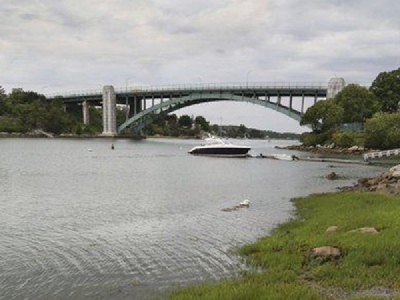
Posted on July 17, 2018
By Christian M. Wade, Gloucester Daily Times
Sediment is piling up on the bottoms of rivers and harbors, putting cities and towns on Cape Ann and elsewhere into a multimillion-dollar bind.
State and federal funding for local dredging has dried up in recent decades, forcing local officials to dig into reserves or borrow money to remove silt in order to make their waterways deep enough for boats to navigate.
Gov. Charlie Baker has pitched a new program — with $50 million in grant money — to help coastal communities pay for dredging as part of a more than $660 million economic development proposal, which cleared the state House of Representatives late Tuesday.
The measure still needs approval from the state Senate.
Under Baker’s plan, communities would compete for matching grants and be required to cover half the costs of each project.
Senate Minority Leader Bruce Tarr, R-Gloucester, said the money would go a long way because many communities along the coast haven’t dredged in decades. In many instances, he said, silting is making waterways less navigable.
“On the North Shore, we have commercial fishermen who need to get from Gloucester Harbor to Ipswich Bay and commercial clammers in Essex who are struggling to navigate downriver to the flats,” he said.
Most of the federal dredging money through the U.S. Army Corps of Engineers goes to industrial ports that require deep channels for shipping traffic, Tarr said.
“We’ve been advocating for this funding for a long time,” he added. “Cities and towns simply can’t do this on their own, and the funding has been sporadic.”
Cape Ann projects
In most cases, dredging can be as simple as an excavator on a floating barge removing sediment from the bottom then taking the material to land. Projects also require environmental reviews as well as state and federal permits.
Locally there are several dredging projects underway or in the planning stages — including one along the Annisquam River through Gloucester and Ipswich, which hasn’t been dredged since 1963.
The Northeast Coastal Coalition, which includes communities from Manchester to Salisbury, has projects planned in waterways around Gloucester, Ipswich and Essex, as well as the Merrimack River.
“We have projects on the drawing board in all of those communities,” said Tarr, chairman of the coalition. “So this funding is critically important to the region.”
In Gloucester, portions of the federally-managed Annisquam River have been rendered impassable to large rescue craft, such as the Coast Guard’s 47-foot lifesaving boat. That has left the city’s smaller rescue and response vessels from the Harbormaster office and police and fire departments as default first responders for marine calamities occurring north of the Blynman, or Cut, Bridge.
For Essex, both within town and outside of it, the Essex River has silt and sand buildup. Low tide in town is a continued safety concern. “The harbormaster can’t get out at low tide, the Coast Guard can’t get in at low tide,” Selectmen Chairman Lisa O’Donnell has said.
But affordability for dredging is something leaders are struggling with.
“Dredging is something Essex can’t feasibly afford,” O’Donnell has said.
Newburyport challenges
In recent years, the U.S. Coast Guard has issued advisories to boaters at Plum Island Point and other areas where channels need to be dredged.
“It’s a real challenge to keep our river open and deep enough,” said Newburyport Mayor Donna Holaday, who said grant money could help keep the mouth of the Merrimack River clear of sand and sediment. “It’s really important for the safety of commercial and recreational boaters, as well as the Coast Guard.”
The Coast Guard station in Newburyport is located on the river, so vessels called to assist boaters in the open waters of the Atlantic Ocean must navigate through Plum Island Point to reach them.
Newburyport has joined several communities seeking funding from the Corps of Engineers to dredge the Piscataqua River in Portsmouth, New Hampshire. While the project wouldn’t involve local dredging, it would provide dredged sand for beaches along Salisbury and Plum Island to help fight the effects of coastal erosion.
Holaday said if federal funding falls through, the state might be willing to help cover the costs of moving sand to local beaches.
State Rep. Lenny Mirra, R-West Newbury, said the cost of dredging projects is a budget-buster for many communities, and state funding is critical.
“It’s an absolute necessity,” Mirra said. “The rivers need to be dredged more than often these days because of rising sea levels and other factors.”
Mirra, whose district includes Newbury, is trying to bring together several communities to buy equipment for regular maintenance — instead of waiting years for permits and funding to clear out local waterways. He has filed a proposal to hire Woods Hole Oceanographic Institution to conduct a feasibility study.
“A lot of our economy depends on the waterways being clean and clear,” he said. “It’s something that has to be done, and there’s no cheap way around it.”
Source: Gloucester Daily Times





